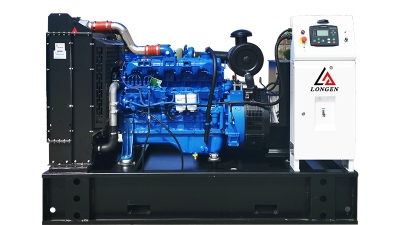The Ultimate Guide to Choosing the Right 400kva Generator for Your Needs
Table of Contents
- Key Considerations When Selecting a 400kVA Generator for Specific Applications
- Understanding the Power Requirements: Load Calculations for Your Setup
- Fuel Options Explained: Diesel vs. Gasoline Generators in 400kVA Range
- Noise Levels and Compliance: What to Expect from a 400kVA Generator
- Cost Analysis: Upfront Investment vs. Long-Term Operational Expenses
- Maintenance Needs: Ensuring Longevity and Efficiency of Your Generator
- Maximize Efficiency and Savings with the Longen 8KW-1000KW Diesel Generator: Your Ultimate Power Solution
- FAQS
- Conclusion
- Related Posts
Picking out the right generator for your power needs isn’t something to take lightly, especially since different applications have their own demands. In this ultimate guide, we’ll mainly focus on the 400kVA generator — a pretty popular choice because it hits that sweet spot between size and power, making it ideal for many industrial and commercial setups. As a top manufacturer in the game, JIANGSU LONGEN POWER TECHNOLOGY CO., LTD. has years of experience in providing high-quality diesel generator sets that range from 5KVA all the way up to 3300KVA. We work with top engine brands like Perkins, Cummins, and Doosan, so you know you’re getting something reliable. Our goal is to help you find the perfect generator that matches your specific needs. This guide is all about giving you the lowdown on choosing the best 400kVA generator, so you can make smarter decisions that boost your operations and keep the power flowing smoothly and reliably.
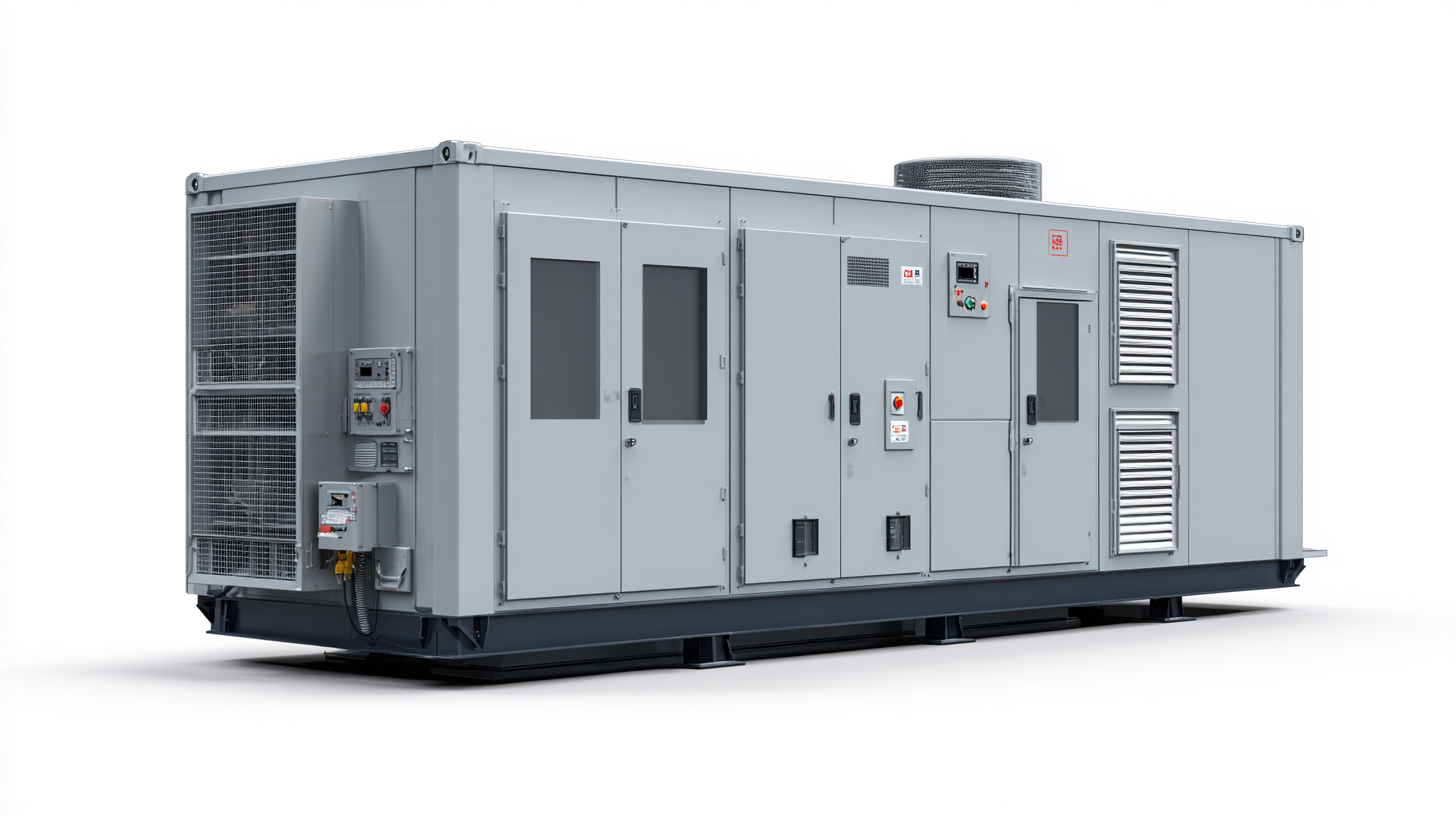
Key Considerations When Selecting a 400kVA Generator for Specific Applications
So, when you're on the hunt for a 400kVA generator, it’s super important to think about what exactly you’re gonna be using it for. You want something that can actually handle your equipment’s power needs, but at the same time, it should be efficient and reliable — nobody wants a generator that keeps breaking down or wastes fuel, right? Things like what kind of fuel it uses, how loud it is, and how easy it is to move around can really influence your decision. For example, if you’re working in an city area where noise levels matter, going for a quieter model is definitely worth considering. And don’t forget to look at whether it can handle changing loads—if your setup involves sensitive gear that needs steady power, that’s a must-have too.
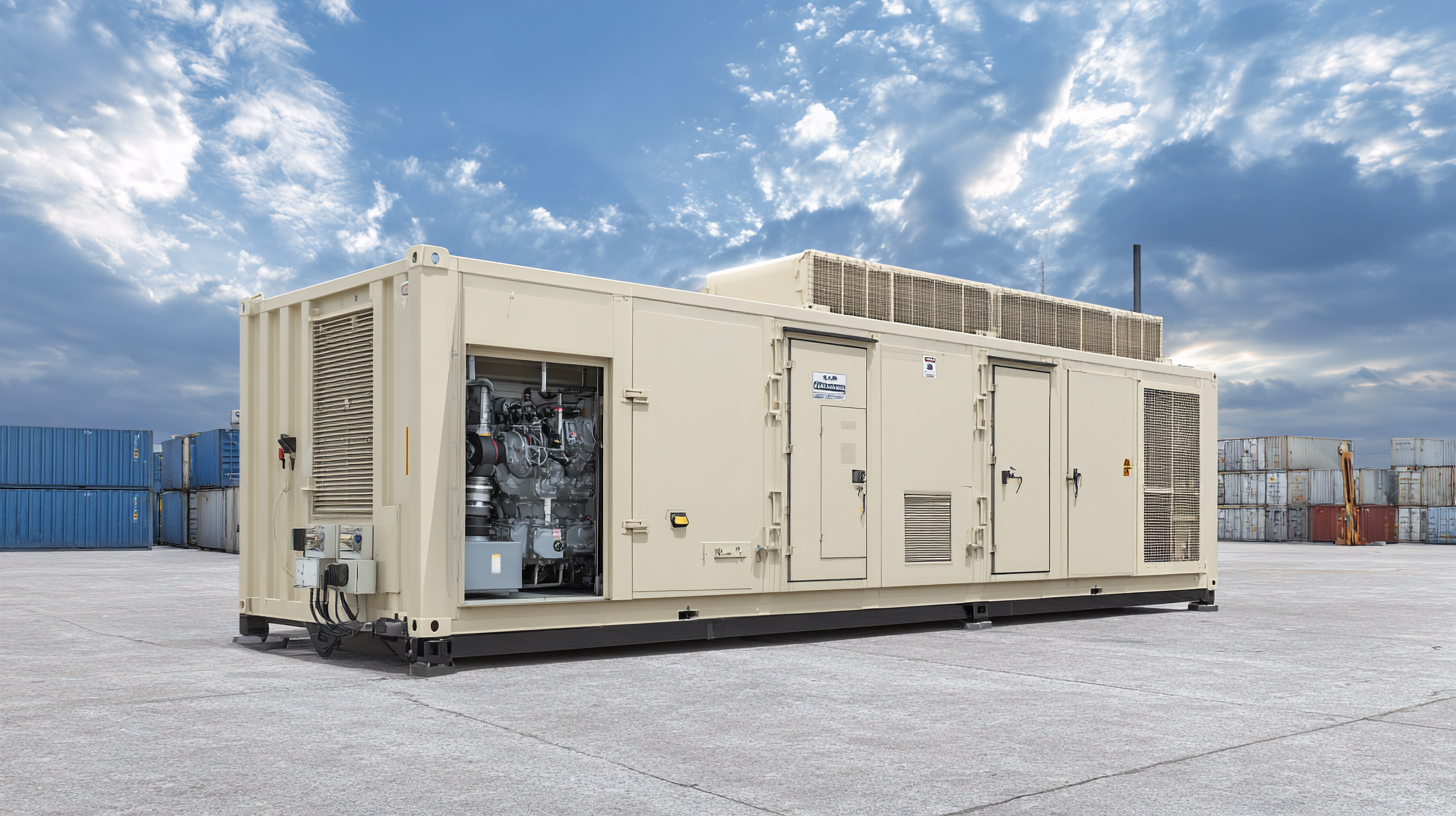
On another note, as industries are pushing to make energy more efficient, the whole high-capacity DCFC (that's Direct Current Fast Charging) station thing really highlights how important quick, reliable power is. This is especially true if you're into supporting EV charging — a generator that supplies steady energy to those fast chargers not only speeds things up for users but keeps them happier overall. So, when you’re choosing your generator, it’s smart to keep these modern energy needs in mind to make sure it performs well in your specific situation.
Understanding the Power Requirements: Load Calculations for Your Setup
So, when you're trying to pick out the right 400kVA generator, the first thing you really gotta do is figure out what kind of power you actually need. Seriously, start by adding up the wattage of all the appliances and gear you plan to run at the same time—that means everything from your lights to big machinery. But don't forget, it’s not just about the running watts; some stuff, especially motors, need way more power at startup. It’s a good idea to add a safety margin—say, around 20%—to your calculations just to be safe. That way, your generator won’t be pushed to its limit if there's a sudden power spike.
Also, think about the kind of loads you'll be dealing with. Resistive loads, like light bulbs and heaters, behave differently from inductive loads—things like refrigerators and AC units—when it comes to power use. Taking those differences into account can really help you make a smarter choice. And hey, if you think you might want to expand your setup later on, going for a slightly bigger generator now could save you headaches down the road. Better to have a little extra capacity than to keep upgrading later, right?
The Power Requirements for a 400kVA Generator
This bar chart illustrates the estimated power consumption (in kW) for various types of equipment commonly powered by a 400kVA generator. By understanding these load calculations, you can better assess your power needs.
Fuel Options Explained: Diesel vs. Gasoline Generators in 400kVA Range
So, when you're looking at a 400 kVA generator, one of the biggest choices you'll face is deciding on the fuel type. Diesel and gasoline generators each have their own perks, depending on what you need them for. Diesel ones are usually the go-to if you want something that’s fuel-efficient and built to last. They’re pretty much made for heavy-duty work, which makes them perfect for industrial settings where you need reliability and durability. Plus, they often pack a higher power punch and handle loads better, so if your operation runs for long hours, they can be a real game-changer.
On the flip side, gasoline generators are usually lighter and easier to move around. They tend to cost less upfront and are simpler to use—great if you’re running a small business or just need power temporarily. They’re also quieter and tend to produce fewer pollutants than diesel models. That can be a pretty big deal if noise or environmental concerns matter to you. Bottom line – choosing between diesel and gasoline in the 400 kVA range really depends on your specific needs—things like ongoing costs, how much power you need, and what you'll actually use the generator for.
The Ultimate Guide to Choosing the Right 400kva Generator for Your Needs - Fuel Options Explained: Diesel vs. Gasoline Generators in 400kVA Range
| Feature | Diesel Generators | Gasoline Generators |
|---|---|---|
| Fuel Efficiency | Higher fuel efficiency, suitable for long-term use | Lower fuel efficiency, more suited for short-term usage |
| Initial Cost | Typically higher initial costs | Generally lower initial costs |
| Maintenance | Requires regular maintenance but can last longer | Easier maintenance but may have a shorter lifespan |
| Noise Level | Generally noisier | Quieter operation |
| Fuel Availability | Widely available, especially in remote areas | Commonly available but less ideal for remote locations |
| Environmental Impact | Higher emissions | Lower emissions, more environmentally friendly |
Noise Levels and Compliance: What to Expect from a 400kVA Generator
When you're looking at a 400kVA generator, it’s super important to get a good handle on its noise levels and whether it ticks all the local compliance boxes. Generators can get pretty loud, and that noise isn’t just annoying—it can actually cause issues if you’re in a neighborhood or a business zone with strict rules. Most of these generators are designed to stay within certain decibel ranges—usually between 60 and 75 dB(A) at about 7 meters away. That’s roughly the same as normal conversation, so it’s generally fine for lots of residential or commercial spots.
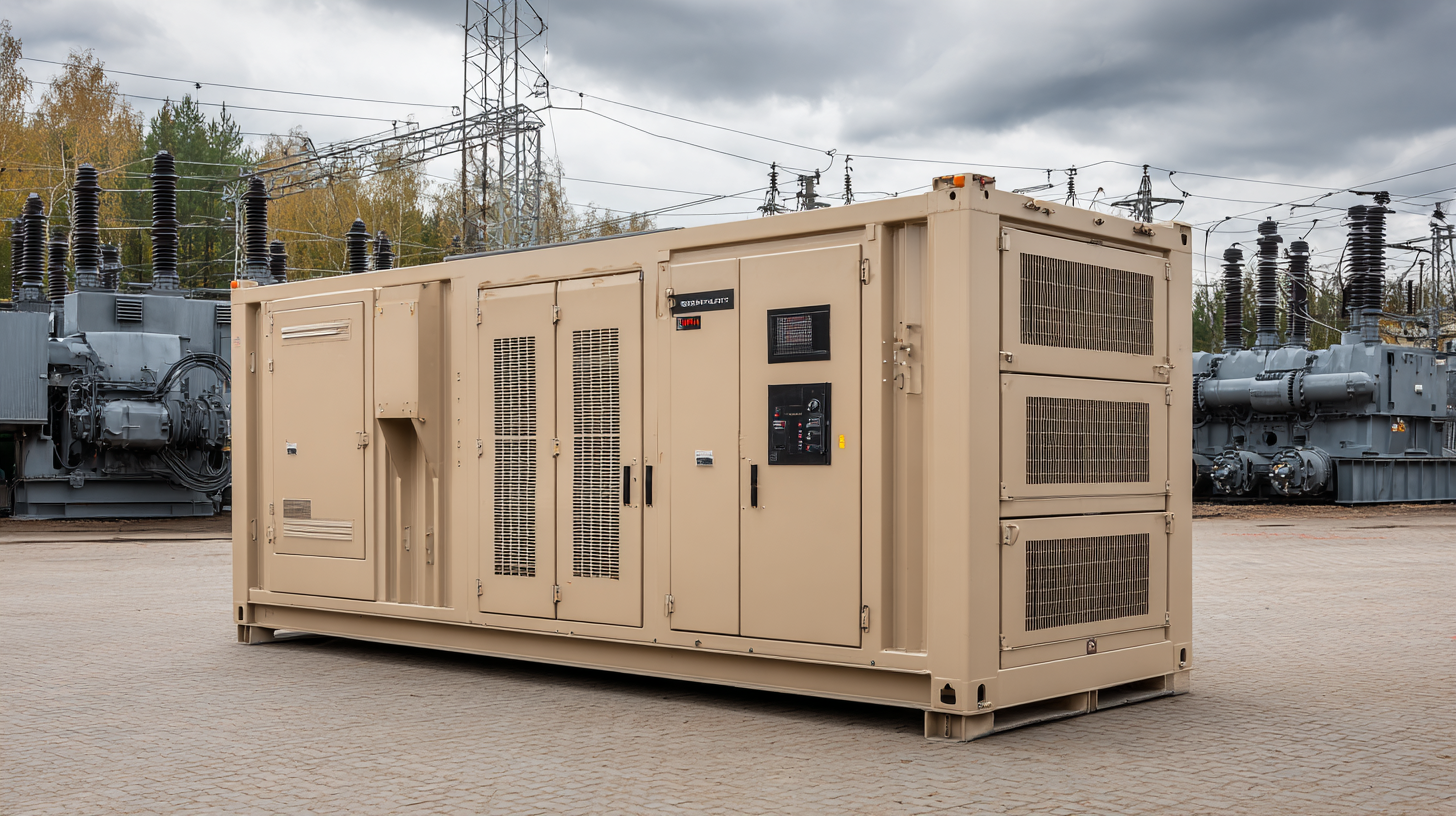
But here’s the thing—make sure you double-check what the manufacturer says about noise levels, and be aware of any local noise rules. Some areas have pretty tight restrictions, especially overnight or in residential neighborhoods. Besides just the basic noise output, you might want to think about adding soundproofing or choosing models with acoustic enclosures—that’s a fancy way of saying they’re built to muffle the sound without messing up performance. By paying attention to noise and making sure you’re compliant, you’ll end up with a generator that works well for you and doesn’t disturb the peace around you.
Cost Analysis: Upfront Investment vs. Long-Term Operational Expenses
So, when you're trying to pick out a 400kVA generator, it's really important to think about both the upfront cost and what you'll be spending in the long run. I mean, sure, the initial price might catch your eye first, but those ongoing expenses—fuel, maintenance, maybe even the occasional downtime—can really add up and make a huge difference when you look at the bigger picture. Doing a little deep dive into those costs can help you make a smarter choice—balancing what you pay now with what you'll save later.
Quick tip: Go for generators that are pretty fuel-efficient. Even if they cost a tad more upfront, they'll save you money over time because they'll sip fuel instead of gulping it down. Also, don't forget to check out how easy it is to find spare parts and get the generator serviced—this stuff can really impact your maintenance costs and how often your generator is down.
Another tip: Take a look at the warranties and service plans that come with the generator. Picking one with a solid warranty and good support means fewer surprises down the road—keeping your expenses predictable and your operations smooth sailing.
Maintenance Needs: Ensuring Longevity and Efficiency of Your Generator
When you're choosing a 400kVA generator, it’s super important to get a good handle on its maintenance needs. Staying on top of regular check-ups—like inspecting the oil filters, fuel system, and cooling parts—can really make a difference. Stuff like changing the oil or swapping out air filters may seem simple, but trust me, it can really boost your generator’s lifespan and keep it running smoothly.
It might also be worth looking into a maintenance contract with a trusted service provider—they can handle the technical stuff and come through when you need them.
Plus, keeping detailed records of all your maintenance work? That’s a total game-changer. Not only does it help catch recurring issues early, but it also keeps you in line with warranty requirements.
And don’t forget—storing the generator in a clean, organized space helps a lot with its durability too. When your generator is well taken care of, it runs more efficiently, burns less fuel, and is kinder to the environment. Bottom line? Regular maintenance isn’t just a chore—it’s the key to keeping your 400kVA power source reliable for years to come.
Maximize Efficiency and Savings with the Longen 8KW-1000KW Diesel Generator: Your Ultimate Power Solution
In the pursuit of maximizing both efficiency and savings, the Longen 8KW-1000KW Diesel Generator stands out as an exceptional power solution tailored to meet diverse energy needs. Jiangsu Longen Power Technology Co., Ltd., with its 16 years of industry expertise, has positioned itself as a leader in the generator manufacturing sector. According to a recent industry report by the International Energy Agency, the demand for reliable and efficient power solutions is on the rise, particularly in sectors like construction, mining, and events management. Longen generators are engineered to meet this demand by leveraging advanced technology, ensuring optimized performance, and minimizing downtime.
One of the key features of Longen generators is their user-centric design. With accessible components and straightforward interfaces, maintenance becomes a hassle-free task. This design philosophy significantly reduces operational downtime, allowing users to focus on productivity rather than equipment issues. Industry studies indicate that proper maintenance can extend equipment life by 30-50%, and Longen generators, built with high-quality materials, are no exception. Their robust construction guarantees reliable power delivery over extended periods, decreasing the frequency and costs associated with replacements and repairs.
Investing in a Longen diesel generator not only provides a dependable power source but also aligns with the growing emphasis on sustainability within the energy sector. With innovations that focus on reducing fuel consumption and emissions, these generators cater to the increasing demand for environmentally conscious solutions. As businesses strive to balance efficiency and corporate responsibility, the Longen 8KW-1000KW Diesel Generator emerges as a top-tier choice, offering savings without compromising on performance or reliability.
FAQS
generator?
Resistive loads, like light bulbs and heaters, and inductive loads, such as refrigerators and air conditioners, have different power consumption patterns. Understanding these differences helps in selecting the appropriate generator for your needs.
It is wise to opt for a generator with a bit more capacity than your current needs if you anticipate increasing your power demands in the future.
Diesel generators are known for their fuel efficiency, longevity, and heavy-duty capabilities, making them ideal for industrial applications that require reliability and consistent performance under load.
Gasoline generators are typically more lightweight, portable, and have a lower initial cost. They are easier to operate and quieter, making them suitable for smaller businesses or temporary power needs.
Diesel generators generally have higher fuel efficiency and longer life spans, which can result in lower operational costs over time, while gasoline generators have lower initial costs and simpler operation, affecting the decision based on specific use cases.
If noise levels and emissions are concerns—such as in residential areas or quiet environments—gasoline generators may be preferred due to their quieter operation and lower pollutant output compared to diesel generators.
It's advisable to list all devices you plan to power, checking their wattage specifications, and sum them up while considering both running and starting loads to ensure accurate calculations.
No, the best fuel option depends on specific requirements, including operational costs, power demands, and the application's intended use. Assessing these factors will guide the decision between diesel and gasoline generators.
By incorporating a safety margin of around 20% when calculating total load requirements, you can ensure your generator has enough capacity to handle unexpected surges without straining.
Conclusion
Picking the right 400kVA generator for your needs isn’t just about size — there are a bunch of important factors to keep in mind. First off, it’s really important to understand how much power you’ll actually need. Doing some load calculations helps make sure the generator can handle everything without breaking a sweat. Then, you’ve got to decide between a diesel or gasoline model — diesel generators tend to be more efficient and last longer, but it depends on your situation. Don’t forget about noise levels too, especially if you’re in a residential area or somewhere quiet, and whether the generator meets local rules and regs.
Another thing to consider is the overall cost — not just what you’re paying upfront, but what running and maintaining it will cost over time. Regular upkeep is super important for keeping your generator running smoothly and lasting a good long while. At Jiangsu Longen Power Technology Co., Ltd., we’re all about providing high-quality diesel generators that fit all these different needs. Our goal? Helping you make the best choice so you won’t have to worry about power when it really counts.
Related Posts
-

Innovative Applications of Powered By Mtu in Diverse Industries
-

How to Navigate Export Certifications for the Best 100 KVA Generator Set Success
-
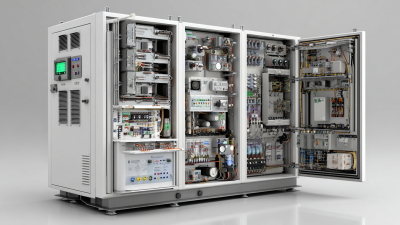
Ultimate Guide to Choosing the Best Low Noise Generator for Your Industrial Needs
-
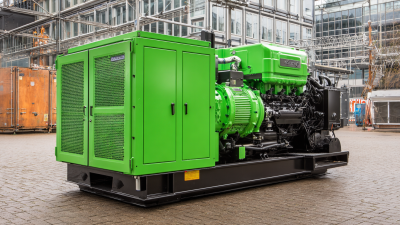
How to Choose the Right 20kw Diesel Generator for Your Business Needs
-

Navigating the Future of Best Generator Set 250 Kva in 2025 Global Market Trends
-

The Ultimate Guide to Choosing the Best 2000kva Diesel Generator Set for Your Needs
Blog Tags:


